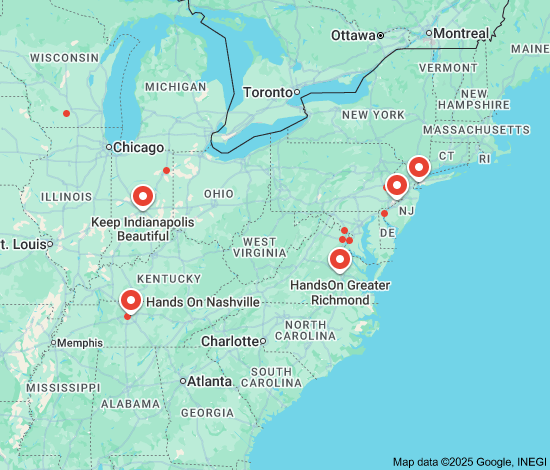The Benefits of Paid Volunteer Work
Volunteering is traditionally seen as a selfless act where individuals donate their time and skills for the greater good without expecting financial compensation. However, the concept of paid volunteer work is gaining popularity as organizations recognize the value of compensating volunteers for their contributions.
One of the key benefits of paid volunteer work is that it allows individuals who may not have the financial means to volunteer otherwise to participate in meaningful projects. By providing a stipend or salary, organizations can attract a more diverse group of volunteers and ensure that everyone has equal access to volunteer opportunities.
Furthermore, paying volunteers can help incentivize participation and commitment. While many people are passionate about volunteering, financial obligations may prevent them from dedicating significant time to unpaid work. Offering compensation can motivate individuals to prioritize their volunteer work and make a more substantial impact.
Another advantage of paid volunteer work is that it can lead to increased professionalism and accountability among volunteers. When individuals are compensated for their efforts, they may approach their volunteer responsibilities with the same level of dedication and professionalism as they would a paid job. This can result in higher quality work and better outcomes for the organization.
Additionally, paying volunteers can help recognize the value of their contributions and show appreciation for their efforts. Volunteers often dedicate countless hours to important causes, and compensating them is a way to acknowledge their hard work and commitment. This can foster a sense of pride and satisfaction among volunteers, leading to greater retention rates and long-term engagement.
In conclusion, paid volunteer work offers numerous benefits for both volunteers and organizations. By providing financial compensation, organizations can attract a diverse group of volunteers, increase commitment levels, promote professionalism, and show appreciation for the valuable contributions made by volunteers. As the concept continues to gain traction, paid volunteer opportunities have the potential to create positive change in communities around the world.
Benefits of Paid Volunteer Work: Accessibility, Motivation, Professionalism, and Quality Outcomes
- Increased accessibility to volunteering for individuals with financial constraints
- Enhanced motivation and commitment from volunteers
- Promotion of professionalism and accountability among volunteers
- Recognition and appreciation for the valuable contributions of volunteers
- Diverse pool of volunteers attracted to paid opportunities
- Potential for higher quality work and better outcomes due to compensated efforts
7 Drawbacks of Compensating Volunteer Work: Balancing Financial Incentives and Genuine Commitment
- May attract individuals motivated solely by financial gain rather than genuine interest in the cause.
- Could create a hierarchy among volunteers based on compensation levels, leading to potential conflicts.
- Organizations may have limited budgets for paid volunteer positions, resulting in fewer opportunities available.
- Paid volunteer work may blur the lines between volunteering and traditional employment, causing confusion about roles and responsibilities.
- Volunteers receiving payment may face tax implications or legal considerations that unpaid volunteers do not encounter.
- Compensation for volunteer work could undermine the spirit of altruism and selflessness traditionally associated with volunteering.
- Paid positions may lead to increased administrative overhead and costs for organizations managing volunteer programs.
Increased accessibility to volunteering for individuals with financial constraints
Paid volunteer work offers increased accessibility to volunteering for individuals with financial constraints. By providing a stipend or salary for volunteer work, organizations can ensure that everyone, regardless of their financial situation, has the opportunity to participate in meaningful projects. This approach not only promotes diversity and inclusivity within the volunteer community but also allows individuals who may not be able to afford unpaid volunteering to contribute their time and skills towards important causes. Ultimately, compensating volunteers helps break down financial barriers and opens up volunteering opportunities to a wider range of individuals, creating a more inclusive and equitable volunteer landscape.
Enhanced motivation and commitment from volunteers
Paid volunteer work can lead to enhanced motivation and commitment from volunteers. When individuals receive financial compensation for their efforts, they are more likely to prioritize their volunteer responsibilities and dedicate themselves wholeheartedly to the cause. This increased sense of commitment can result in higher engagement levels, improved performance, and a greater willingness to go above and beyond in their volunteer work. By recognizing and rewarding volunteers for their contributions, organizations can cultivate a dedicated and motivated volunteer base that is eager to make a meaningful impact.
Promotion of professionalism and accountability among volunteers
One significant benefit of paid volunteer work is the promotion of professionalism and accountability among volunteers. When individuals receive compensation for their efforts, they are more likely to approach their volunteer responsibilities with a higher level of dedication and commitment. This can lead to increased quality of work, better outcomes for the organization, and a stronger sense of responsibility among volunteers. By treating volunteer work with the same level of professionalism as a paid job, paid volunteer opportunities help instill a culture of excellence and accountability within the volunteer community.
Recognition and appreciation for the valuable contributions of volunteers
Paid volunteer work offers a significant pro in the form of recognition and appreciation for the valuable contributions of volunteers. By compensating volunteers for their time and efforts, organizations acknowledge the importance of their work and show gratitude for their dedication to the cause. This recognition not only boosts volunteers’ morale and sense of accomplishment but also fosters a strong bond between volunteers and the organization, leading to increased retention rates and long-term engagement. Ultimately, by valuing and appreciating the contributions of volunteers through financial compensation, organizations create a culture of respect and mutual appreciation that benefits both parties involved.
Diverse pool of volunteers attracted to paid opportunities
One significant advantage of paid volunteer work is the ability to attract a diverse pool of volunteers to participate in meaningful projects. By offering compensation for their time and efforts, organizations can reach individuals from various backgrounds and financial situations who may not have been able to volunteer otherwise. This diversity brings a wide range of perspectives, skills, and experiences to the table, enriching the volunteer team and fostering a more inclusive and dynamic environment for collaboration and impact.
Potential for higher quality work and better outcomes due to compensated efforts
One significant advantage of paid volunteer work is the potential for higher quality work and better outcomes as a result of compensated efforts. When volunteers receive financial compensation for their contributions, they are more likely to approach their responsibilities with professionalism, dedication, and a strong sense of accountability. This can lead to increased efficiency, attention to detail, and innovative problem-solving, ultimately resulting in improved outcomes for the organization or cause being supported. By valuing and compensating volunteers for their efforts, organizations can harness their skills and expertise more effectively, leading to greater impact and success in achieving shared goals.
May attract individuals motivated solely by financial gain rather than genuine interest in the cause.
One significant drawback of paid volunteer work is that it has the potential to attract individuals who are primarily motivated by financial gain rather than a genuine interest in the cause. When compensation is offered for volunteer work, some individuals may see it as an opportunity to earn money rather than as a chance to contribute to a meaningful cause. This can lead to volunteers who are less committed, less passionate, and less invested in the organization’s mission, ultimately undermining the effectiveness and impact of the volunteer efforts.
Could create a hierarchy among volunteers based on compensation levels, leading to potential conflicts.
One significant con of paid volunteer work is the potential for creating a hierarchy among volunteers based on compensation levels, which can result in conflicts within the volunteer group. When some volunteers are paid while others are not, it may lead to feelings of inequality, resentment, and division among team members. Those receiving compensation may be perceived as having more authority or importance, causing friction and undermining the collaborative spirit that is essential for effective volunteer work. This hierarchy based on payment levels can disrupt teamwork, diminish morale, and ultimately hinder the overall success of volunteer projects.
Organizations may have limited budgets for paid volunteer positions, resulting in fewer opportunities available.
One significant con of paid volunteer work is that organizations may have limited budgets allocated for compensating volunteers, which can ultimately lead to a reduction in the number of available opportunities. When financial resources are constrained, organizations may be forced to prioritize certain projects or roles for paid volunteers, limiting the overall scope of volunteer work that can be supported. This restriction can result in fewer opportunities for individuals who rely on compensation to participate in volunteer activities, potentially excluding them from valuable experiences and hindering their ability to contribute to meaningful causes.
Paid volunteer work may blur the lines between volunteering and traditional employment, causing confusion about roles and responsibilities.
One significant con of paid volunteer work is that it can blur the lines between volunteering and traditional employment, leading to confusion about roles and responsibilities. When volunteers receive financial compensation for their efforts, it may create expectations similar to those of a paid job, potentially altering the nature of the volunteer experience. This can result in challenges in defining clear boundaries between volunteer tasks and regular employment duties, causing uncertainty and potential conflicts within the organization. Additionally, the introduction of payment may shift the focus from altruistic motives to financial gain, impacting the genuine spirit of volunteering and diluting its impact on both volunteers and the community they serve.
Volunteers receiving payment may face tax implications or legal considerations that unpaid volunteers do not encounter.
Volunteers receiving payment for their work may encounter tax implications or legal considerations that unpaid volunteers do not have to navigate. When volunteers are compensated, they may be required to report their earnings as income and pay taxes on those payments. This additional administrative burden can be a deterrent for individuals who are not familiar with tax laws or who may not have the resources to seek professional assistance. Furthermore, paid volunteers may also be subject to certain employment laws and regulations that unpaid volunteers are exempt from, potentially complicating the volunteer-organization relationship and adding layers of complexity to the volunteer experience.
Compensation for volunteer work could undermine the spirit of altruism and selflessness traditionally associated with volunteering.
One potential con of paid volunteer work is that offering compensation could undermine the spirit of altruism and selflessness that has traditionally been associated with volunteering. When volunteers receive financial rewards for their efforts, their motivations may shift from a desire to help others and contribute to the community to a focus on personal gain. This shift in mindset could detract from the genuine sense of altruism that drives many volunteers and may lead to a decrease in the intrinsic satisfaction that comes from giving back without expecting anything in return. Additionally, the perception of volunteer work as a selfless act could be compromised if compensation becomes a common practice, potentially altering the dynamics of volunteer organizations and the relationships between volunteers and those they serve.
Paid positions may lead to increased administrative overhead and costs for organizations managing volunteer programs.
One significant con of paid volunteer work is that offering paid positions to volunteers can result in increased administrative overhead and costs for organizations managing volunteer programs. Paying volunteers requires additional resources for payroll processing, budget allocation, and compliance with labor laws and regulations. This can create a financial burden for organizations, especially those operating on limited budgets or relying heavily on donations. The added complexity of managing paid volunteer positions may also divert time and attention away from the organization’s core mission, potentially impacting the overall effectiveness and efficiency of the volunteer program.




Leave a Reply